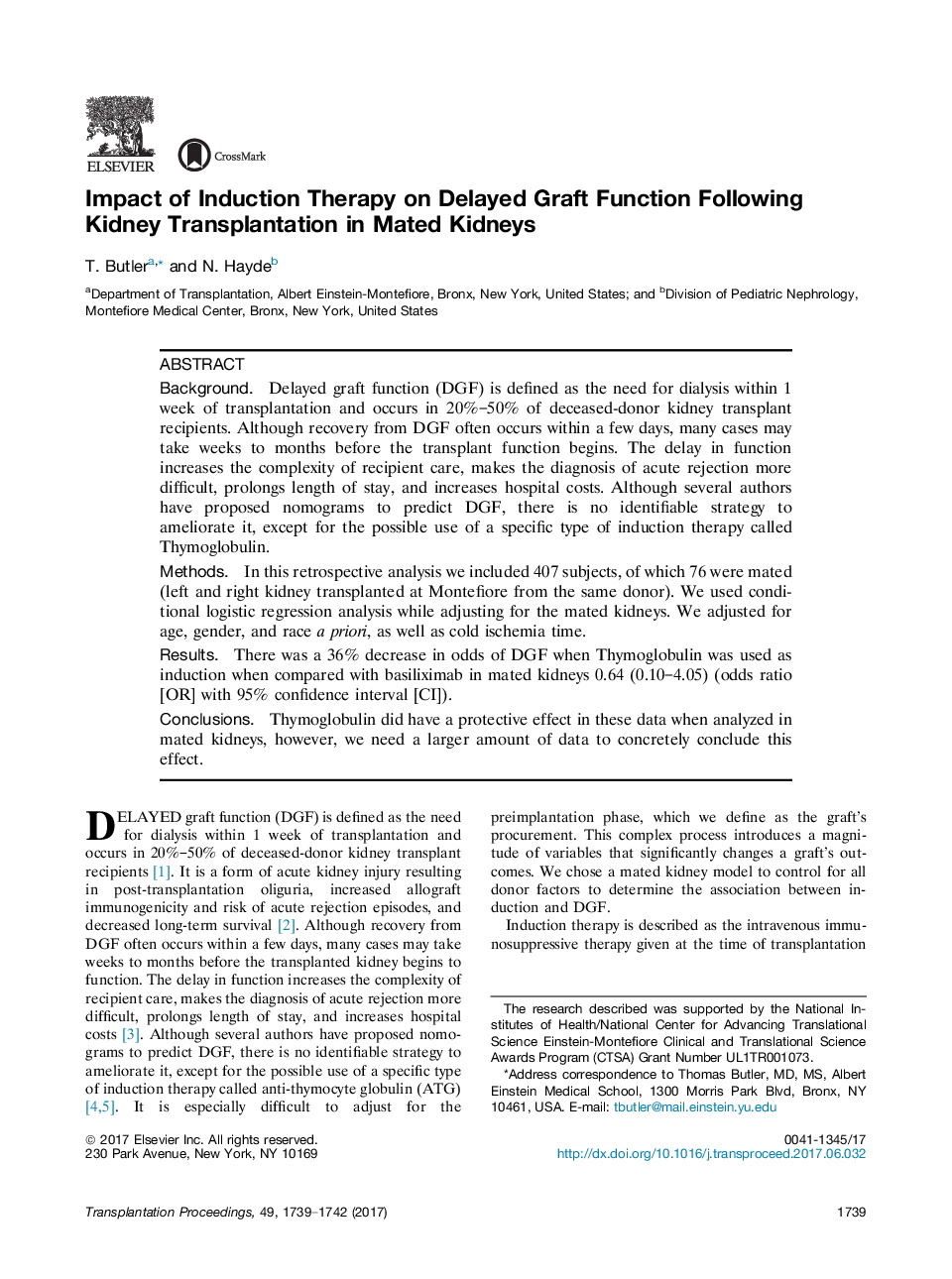| Article ID | Journal | Published Year | Pages | File Type |
|---|---|---|---|---|
| 5728623 | Transplantation Proceedings | 2017 | 4 Pages |
â¢We studied the impact of induction therapy on DGF.â¢We found that Thymoglobulin had a protective effect.â¢We performed a mated kidney analysis.
BackgroundDelayed graft function (DGF) is defined as the need for dialysis within 1 week of transplantation and occurs in 20%-50% of deceased-donor kidney transplant recipients. Although recovery from DGF often occurs within a few days, many cases may take weeks to months before the transplant function begins. The delay in function increases the complexity of recipient care, makes the diagnosis of acute rejection more difficult, prolongs length of stay, and increases hospital costs. Although several authors have proposed nomograms to predict DGF, there is no identifiable strategy to ameliorate it, except for the possible use of a specific type of induction therapy called Thymoglobulin.MethodsIn this retrospective analysis we included 407 subjects, of which 76 were mated (left and right kidney transplanted at Montefiore from the same donor). We used conditional logistic regression analysis while adjusting for the mated kidneys. We adjusted for age, gender, and race a priori, as well as cold ischemia time.ResultsThere was a 36% decrease in odds of DGF when Thymoglobulin was used as induction when compared with basiliximab in mated kidneys 0.64 (0.10-4.05) (odds ratio [OR] with 95% confidence interval [CI]).ConclusionsThymoglobulin did have a protective effect in these data when analyzed in mated kidneys, however, we need a larger amount of data to concretely conclude this effect.
